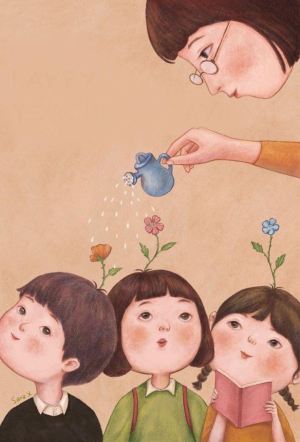 Delhi : Delhi : Every year on September 5, India comes together to celebrate Teacher’s Day, a special occasion dedicated to honouring the invaluable role of educators in shaping society. The day carries historical and cultural significance, rooted in the legacy of Dr. Sarvepalli Radhakrishnan, one of India’s most respected scholars, philosophers, and statesmen.
The tradition of celebrating Teacher’s Day began in 1962, when Dr. Radhakrishnan, who was serving as the President of India, suggested that his birthday should not be celebrated personally but rather observed as a day to recognize and appreciate teachers across the nation. His request struck a deep chord, and from that year onward, September 5 has been marked as Teacher’s Day in India.
Dr. Radhakrishnan, born in 1888, was a renowned academician and philosopher before entering politics. He served as Vice President of India from 1952 to 1962 and later as President until 1967. His profound contributions to education and his belief that “teachers should be the best minds in the country” continue to resonate. His emphasis on knowledge, values, and moral responsibility remains central to the celebration of Teacher’s Day.
Globally, World Teachers’ Day is observed on October 5, following a declaration by UNESCO in 1994 to honour the teaching profession worldwide. However, India celebrates its own unique version a month earlier, reflecting its deep respect for Dr. Radhakrishnan’s legacy and the central role of educators in Indian society.
Teacher’s Day is more than a ceremonial event. It is an opportunity for students to express gratitude through cultural programs, speeches, and heartfelt messages. Schools and colleges across the country host celebrations where students often take on the role of teachers for a day, symbolically acknowledging the effort and dedication it takes to teach. Teachers are honoured with gifts, cards, and awards, reinforcing the bond between mentors and learners.
Over the decades, the observance of Teacher’s Day has also evolved into a platform for recognizing the challenges faced by educators. Issues such as inadequate pay, lack of resources, and the growing demands of modern education often come to light during this time. Policymakers and educationists use the occasion to reflect on reforms needed to strengthen the education system, making the celebration not only an expression of gratitude but also a call for action.
The legacy of Teacher’s Day in India is thus twofold: it is a tribute to the noble profession that shapes future generations, and it is a reminder of the vision of Dr. Radhakrishnan, who saw education as the cornerstone of nation-building. As India continues to advance in science, technology, and global influence, the contributions of teachers remain central to its progress.
This year’s Teacher’s Day celebrations once again highlight the timeless importance of educators. Whether in rural classrooms or urban institutions, teachers continue to inspire, guide, and shape lives, living up to the ideals that Dr. Radhakrishnan cherished. |